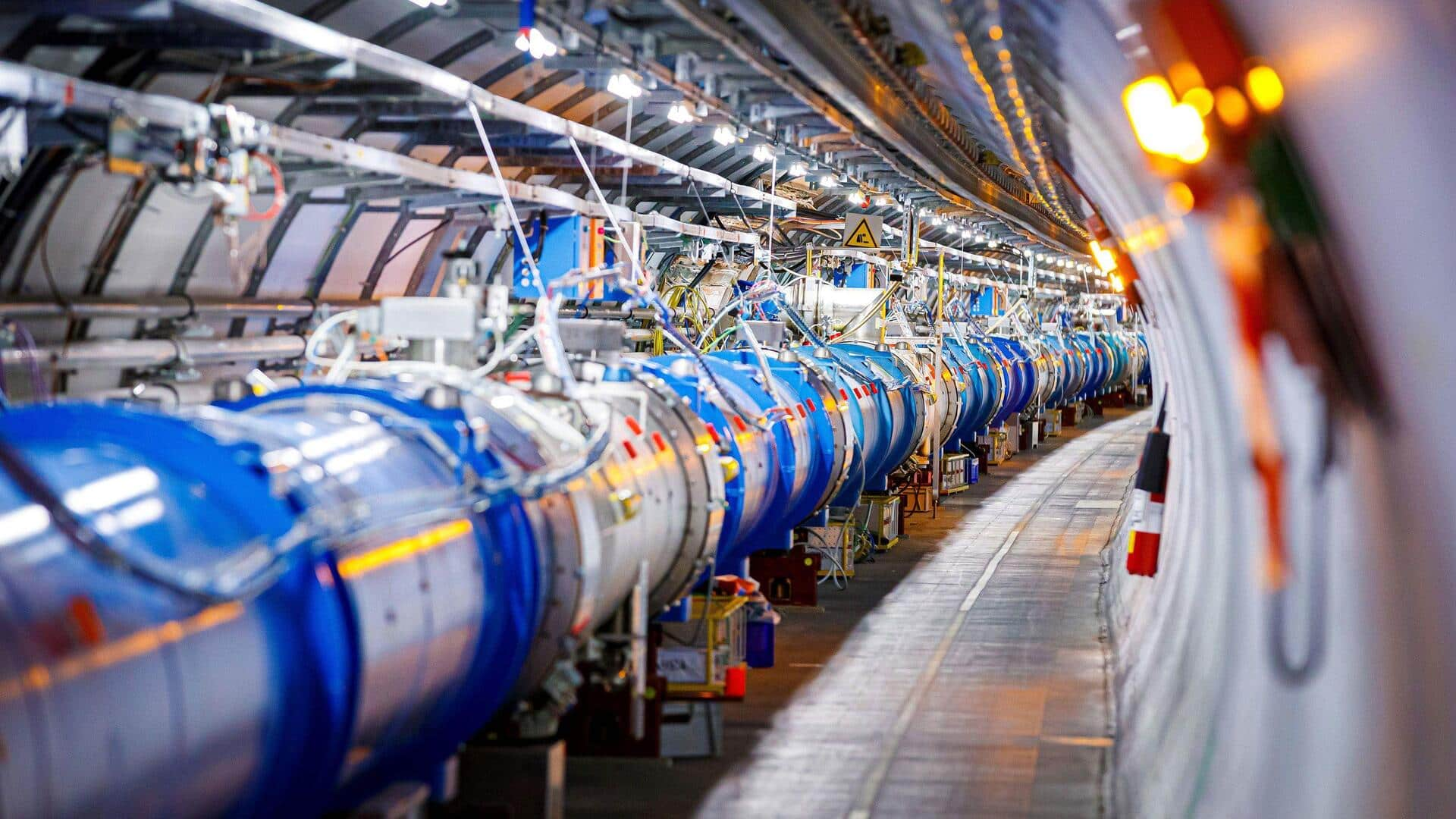
China capable of building world's largest particle collider: CERN president
What's the story
Eliezer Rabinovici, the president of the European Organisation for Nuclear Research (CERN) and professor emeritus of physics at the Hebrew University of Jerusalem, has backed China's bid to construct the world's largest particle collider. During his visit to China in April, Rabinovici expressed confidence in Chinese scientists' capacity to undertake this significant project. Currently, CERN operates the world's biggest particle accelerator, Large Hadron Collider (LHC), housed within a circular tunnel spanning 27km in circumference. It located beneath the Swiss-French border.
Proposal
Proposed collider to outsize LHC
China's proposed Circular Electron Positron Collider (CEPC), or Higgs factory, would surpass the LHC with its impressive 100km circumference. The ambitious project, estimated to cost around CNY 36 billion (nearly $5 billion), is still awaiting final approval from the Chinese government. This proposal has ignited intense debate among scientific circles and the general public in China. Physicist and Nobel laureate Yang Chen-ning earlier voiced opposition toward the project, saying China has more acute needs to deal with.
Praise
Rabinovici praises China's scientific progress and talent pool
Rabinovici, who focuses on theoretical high-energy physics, highlighted significant strides made by Chinese scientists and commended their robust talent pool. "Over the years, many Chinese physicists have worked at CERN and have gained some knowledge and experience. These people are very capable," Rabinovici said. He cited Wang Yifang, a former CERN physicist now leading the CEPC project, an example of this talent. During his visit, he observed Chinese scientists diligently addressing complex challenges like energy conservation for CEPC project.
Innovation
CEPC would be a leap beyond the standard model
The concept of building the CEPC was initially proposed by Wang, in 2012 following the discovery of Higgs boson using LHC. The infrastructure will create millions of Higgs bosons by accelerating electrons and their antiparticles - positrons - to extremely high energies and colliding them into each other. This innovative approach will allow scientists to uncover new discoveries beyond the standard model, our current best theory describing the basic building blocks of the universe.
Funding
Global support and funding concerns for the project
Rabinovici expressed his belief that many scientists worldwide support this project despite concerns about funding for other urgent social issues and areas. Wang recently conceded that "36 billion yuan is not cheap" but argued that if CEPC could support work for thousands of scientists for decades to come, its average cost would not be high. In March, Wang disclosed to Global Times that construction of this super collider in China could commence within three years pending government approval and funding.